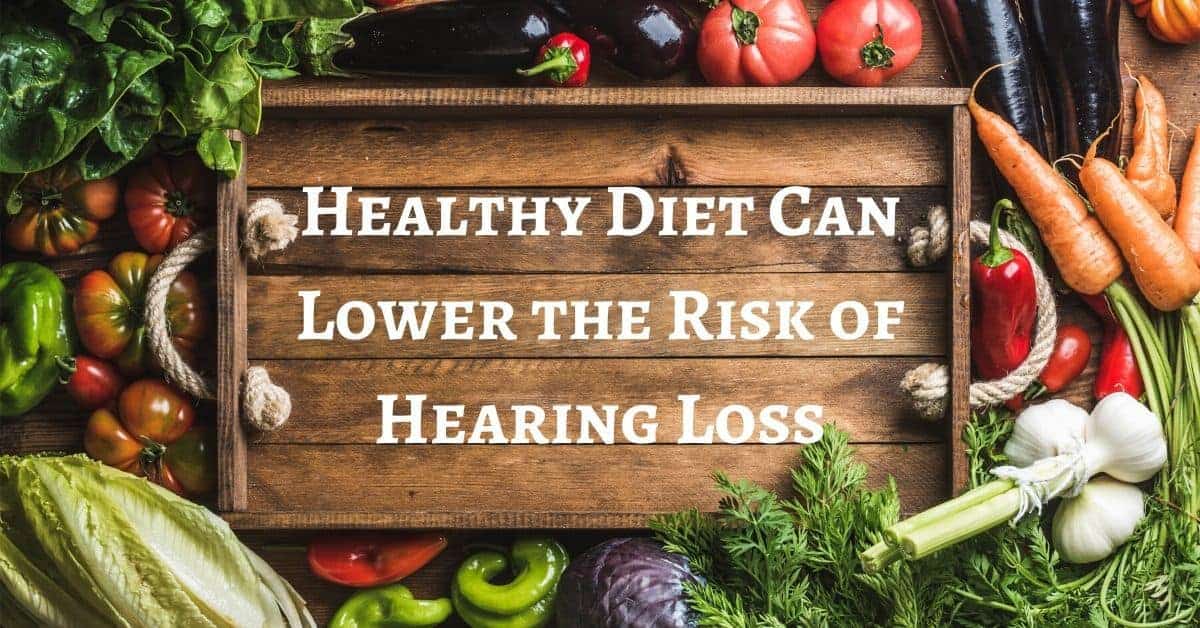There are many reasons to adhere to a healthy diet, from keeping us full of energy to reinforcing our immune system to reducing our cholesterol. Now we have another reason – a few recent studies have reported that a healthy diet could actually help reduce the risk of hearing loss.
An initial study into the effect of diet on hearing loss
A large study of American women was performed by researchers at Brigham and Women’s Hospital in 2017. Led by head researcher Dr. Sharon Curhan, the team gathered health data from over 80,000 women between 25 and 42 years of age. They then followed up with them for every 2 years for 26 years, interviewing them about their general health, well-being, and hearing health.
Depending on how strictly they followed specific healthy eating recommendations, they discovered that those with the healthiest diets were 47% less likely to experience hearing loss.
Curhan reported that “findings from our research have highlighted a number of dietary factors that can be modified and may reduce the risk of hearing loss.”
The new and improved study
Although the study started an important conversation about the effect of our diet on hearing health, some were concerned about the validity of the self-reported data used. They noted that people are generally poor at gauging their own health, especially something as personal as hearing loss.
To mitigate these concerns, Curhan and her team decided to complete a second study of the connection between hearing loss and diet. The difference this time is that they would scientifically test the hearing loss of respondents.
The team created 19 testing sites across the United States and had licensed audiologists check changes in the female participants’ hearing abilities over a three-year period. The audiologists in particular were looking for changes in the pure-tone hearing thresholds of the respondents, in other words, the lowest pitch sound they could hear. Various frequency tones were played by audiologists at various loudness levels. Participants were then asked when they couldn’t hear anything, thus revealing the lowest pitch sound they were able to hear.
The research team then looked at how carefully the women’s diets mirrored those of a healthy diet, armed with over 20 years of information on nutritional habits that had been gathered on the participants.
Different approach, same results
The results of that study came out in October of last year, and they broadly confirm Curhan’s previous work.
The results showed that those who stuck to healthy diets, such as the Dietary Approaches to Stop Hypertension (DASH) diet or the Alternate Mediterranean diet (AMED), were far less likely to experience hearing loss.
Women on health diets had a nearly 30% lower chance of developing a decline in hearing in the mid-frequencies. They also had a 25 percent lower chance with regard to the higher frequencies.
How can a healthy diet help protect you from hearing loss?
Our auditory system leans heavily on an adequate supply of blood flow, which brings oxygen to the tiny hair cells in our inner ears. These cells have the job of detecting sound signals, which are then converted and sent to the brain to be processed as sound. A healthy diet contributes to a healthy heart, which means the best chance of providing the needed oxygen our hair cells need to do their job.
According to Curhan, the best diets to help you protect your hearing are the Alternate Mediterranean Diet, and the Dietary Approaches to Stop Hypertension (DASH). Both advocate large amounts of vegetables, fruits, nuts, legumes and whole grains and less meat, sugar and salt. The Mediterranean diet promotes consumptions of lots of fish and olive oil, and the DASH encourages low levels of sodium and high levels of fibre.
Hearing Wellness Solutions
If you have found changes in your hearing and would like some help, we are on hand to help. Treatment of hearing loss can lead to better communication and help you maintain your independence. Contact us at Hearing Wellness Solutions today.


